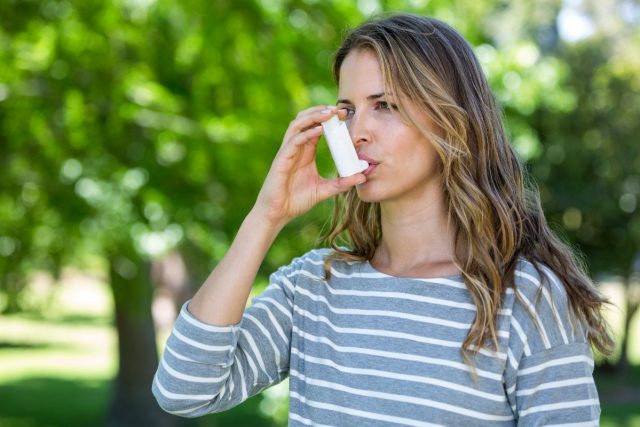Responses more frequent in initiators than noninitiators, but 40 to 50 percent of initiators did not meet response criteria
By Elana Gotkine HealthDay Reporter
FRIDAY, June 28, 2024 (HealthDay News) — Patients with severe asthma initiating biologics exhibit clinical responses and super-responses, but 40 to 50 percent do not meet response criteria, according to a study published online June 22 in Allergy.
Eve Denton, M.B.B.S., from Alfred Health in Melbourne, Australia, and colleagues examined responsiveness to biologics in a real-world population of adults with severe asthma. Participants in the International Severe Asthma Registry (ISAR) with ≥24 weeks of follow-up were categorized as those who initiated or did not initiate biologics. Treatment responses were examined in various domains: forced expiratory volume in one second (FEV1) increase by ≥100 mL, improved asthma control, annualized exacerbation rate (AER) reduction ≥50 percent, and any long-term oral corticosteroids (LTOCS) dose reduction. Overall, 5.3 percent of the patients in ISAR met the inclusion criteria for the trial; 2,116 of 8,451 initiated biologics.
The researchers found that compared with noninitiators, biologic initiators had worse baseline impairment, despite having similar biomarker levels. Of the initiators, about half or more had treatment responses: 59 percent AER reduction, 54 percent FEV1 increase, 49 percent improved control, and 49 percent reduced LTOCS; of these, 32, 19, 30, and 39 percent, respectively, were super-responses. Compared with noninitiators, biologic initiators more often had responses/super-responses; however, about 40 to 50 percent of initiators did not meet the criteria for response.
“These findings justify further research to determine whether initiating biologics earlier — before asthma causes irreversible lung damage — may increase the likelihood of achieving a response or super-response,” the authors write.
Several authors disclosed ties to biopharmaceutical companies, including AstraZeneca and Optimum Patient Care Ltd., which funded the study.
Copyright © 2024 HealthDay. All rights reserved.



















